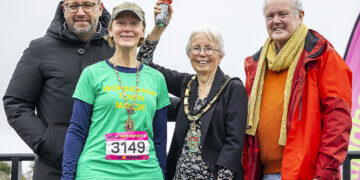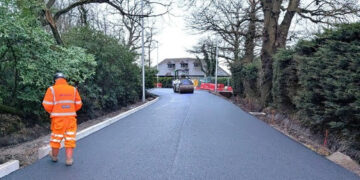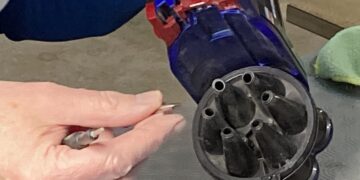By Cllr Tony Skuse
A couple of years ago my daughter gave me an Apple watch for Christmas.
After a few months I woke to find an announcement on the watch telling me it had detected Atrial Fibrillation (AF) which is a heart condition.
I went to see the GP who passed me on to a cardiologist who confirmed the diagnosis and prescribed some medication to be taken for ever more. After a couple of months my watch started to report zero AF and I have not had any since.
This got me thinking about our healthcare system.
Our health outcomes do not compare well with other developed countries, cancer survival rates are poorer and so are the survival times for many conditions.
The main problem seems to be that we do not diagnose these various conditions early enough and once the condition is discovered it is often too late for effective treatment.
Some of us now now lucky enough to wear devices such as Apple watches or Fitbits which can detect a number of medically valuable parameters.
Wearable devices could be developed which could monitor many more.
It is very expensive to treat patients with advanced conditions and much cheaper to detect things earlier and give preventative medicine.
I can envisage a future where we all wear some sort of watch-like monitor connected via a phone app to a database that would allow the detecting of any outlying parameters. If something outside the normal range, it could alert the system prompting an invitation for an appointment.
Much of the kit required to do this is available now, the wearable devices would be required in large numbers so hopefully could be produced cheaply. I suspect that such a system could dramatically reduce the cost of healthcare and more importantly cause a dramatic improvement in public health.
An obvious place to start would be to run pilot schemes in care homes and with other vulnerable groups, with a view to expanding the scheme if it proves successful.
There are potential participation problems. I discussed my ideas with my daughter and she was horrified, saying she would not be prepared to put her health data in the public domain.
Our health professionals have a good track record at keeping our data private, but I can see that some people would be reluctant participants, but I would hope that once they saw the health improvements they would be persuaded.
Many people are understandably concerned that the huge volume of valuable data already held by the NHS is being sold to American private medical providers.
I was reassured by the recent comments made by Labour’s Shadow Health secretary, Wes Streeting, that Labour will not sell off NHS patients’ data.
When Labour was last in power, public satisfaction with the NHS was at an all-time high. Ten years of Conservative underfunding of services and undervaluing of NHS employees left the NHS on its knees, with record waiting lists, at for the start of the pandemic.
A pandemic in which 1,500 health and care staff died.
Three years later and all parts of the health system are in crisis. We need to find a more efficient way of delivering health care which gives us all better protection against serious illness. Wes Streeting, has spoken about innovative ways of improving our health services and the better use of technology. Perhaps more personalised monitoring could be the sort of radical idea which helps create a healthier future for us all.
We also need to take the public with us. For example, although many people are happy with time-saving online GP consultations, many are not. There has always been resistance and scare-mongering in relation medical innovation.
But two things are for certain. The Conservatives have proved again that they cannot be trusted with the NHS and the next Labour government will certainly have its work cut out to fix the NHS.
Cllr Tony Skuse is Labour member for Bulmershe and Whitegates ward on Wokingham Borough Council













































